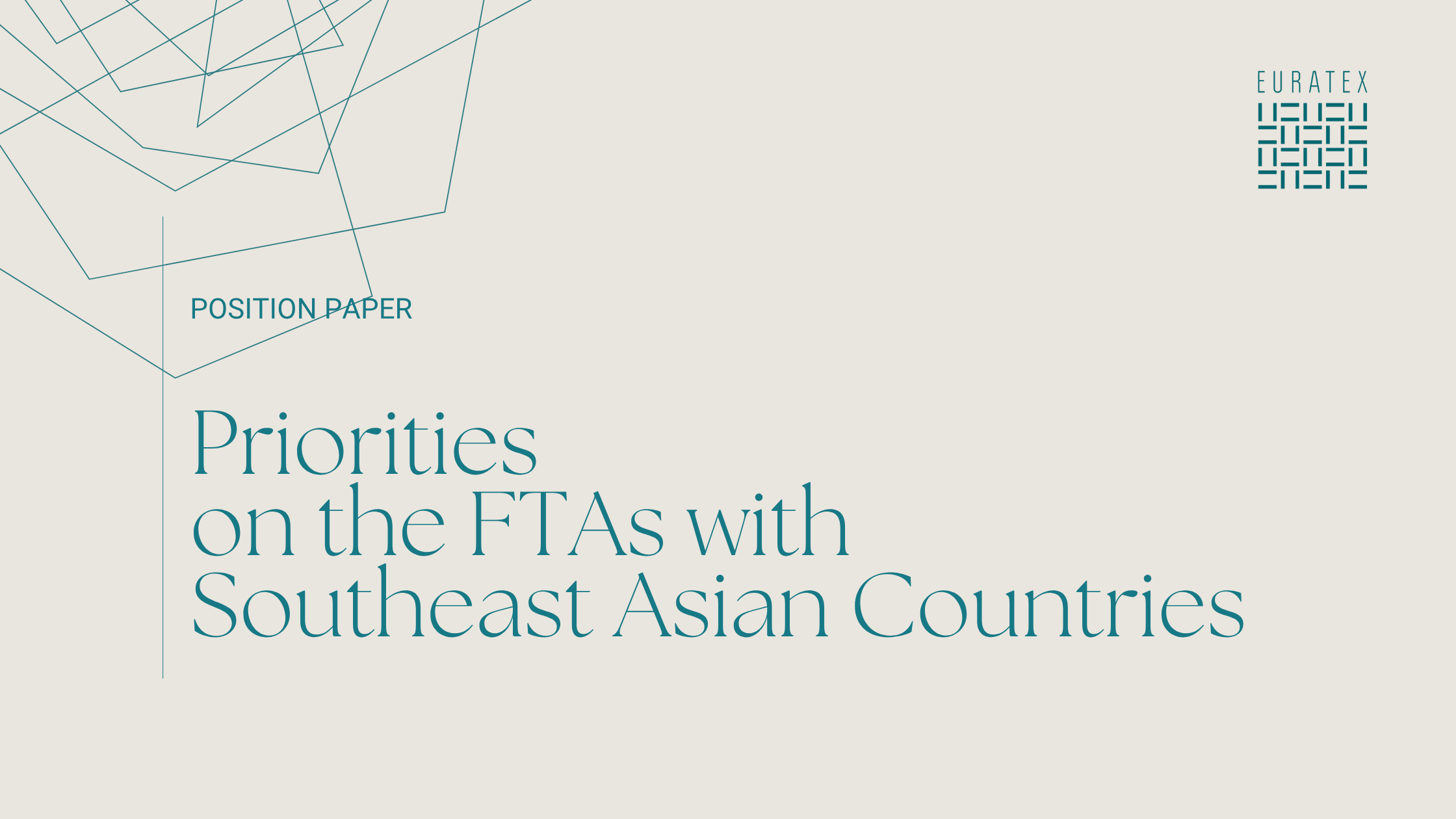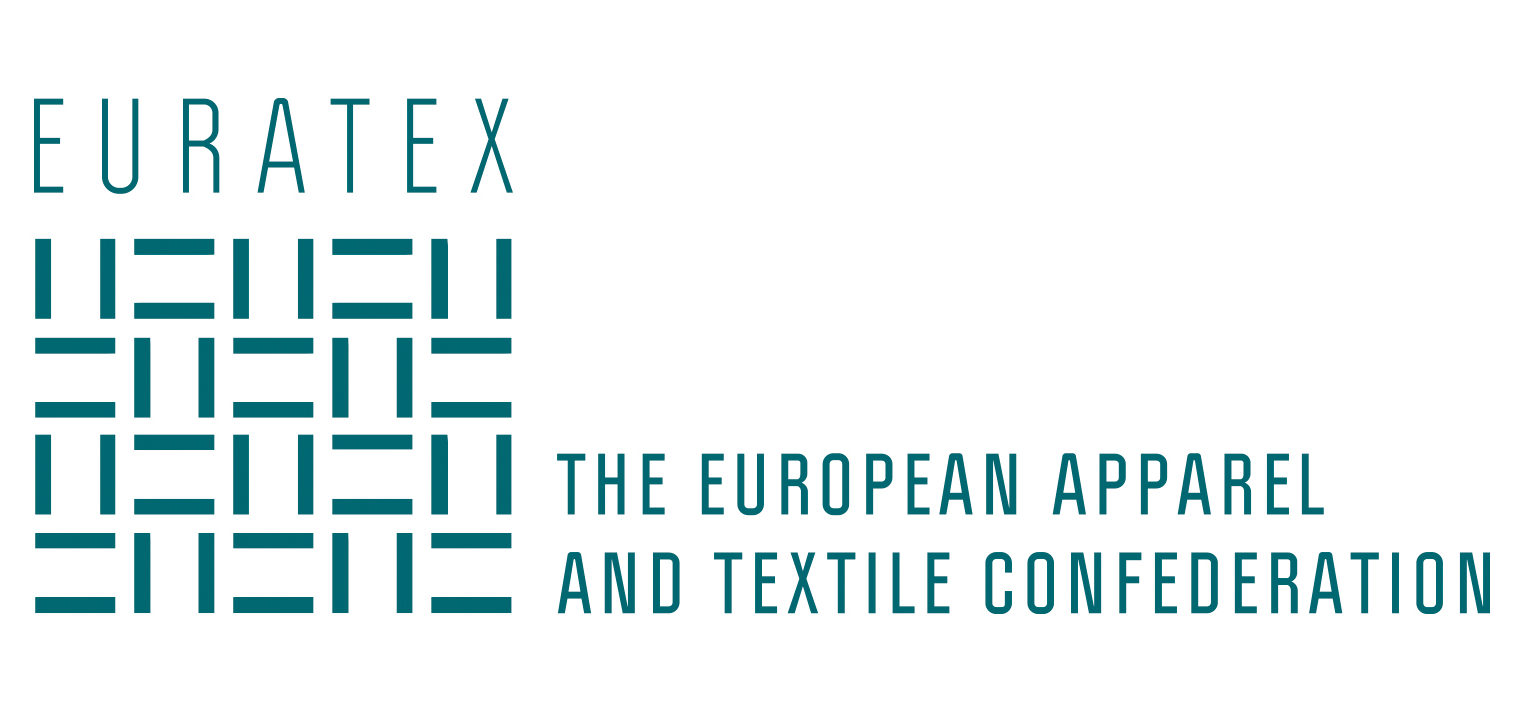
EURATEX strongly supports the swift conclusion of Free Trade Agreements (FTAs) between the European Union and four key Southeast Asian countries: Indonesia, Thailand, the Philippines, and Malaysia. These FTAs are essential to enhance the competitiveness, resilience, and sustainability of the European textile and apparel industry.
The European textile sector is highly globalised, with over €60 billion in annual exports and more than half generated by small and medium-sized enterprises (SMEs). With rising global competition, particularly from China, the EU must act decisively to diversify trade, reduce dependency, and unlock new opportunities in the ASEAN region.
EURATEX advocates for FTAs that ensure:
- Open and efficient markets through reduced tariffs and fewer trade barriers
- Legal certainty and protection of intellectual property rights for European businesses
- Sustainable development goals, aligned with international social and environmental standards
- Complementarity between EU trade and industrial policy, including better access to raw materials
- A rules-based trading system that ensures fair enforcement and accountability
- Strong support for WTO principles, including reforms on subsidies, public procurement, and IPR
Each of the four partner countries presents unique opportunities:
- Indonesia: As a major Southeast Asian economy, a deal would improve market access, reduce non-tariff barriers, and strengthen EU investment.
- Thailand: A strategic trade hub, offering prospects for resilient supply chains and streamlined customs procedures.
- Philippines: An emerging market with growing demand and potential for enhanced cooperation on EU standards.
- Malaysia: A CPTPP and RCEP member, offering EU companies a gateway to wider Asian markets and high-value manufacturing partnerships.
To ensure mutual benefit, EURATEX highlights the need for modern rules of origin, effective customs enforcement, non-tariff barrier elimination, and public procurement access. Cumulation provisions, such as including Türkiye in the Malaysia agreement, should also be considered.
In the face of growing geopolitical uncertainty and global overcapacity—especially in the synthetic fibre segment—these FTAs offer a strategic response. They not only secure fair trade but also reinforce the EU’s presence in a region vital to the future of sustainable and competitive textiles.
Read the full Position Paper on FTAs with Southeast Asia.
